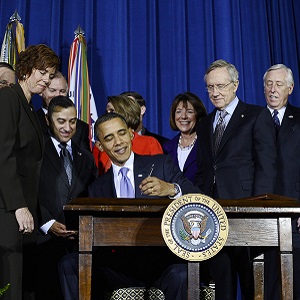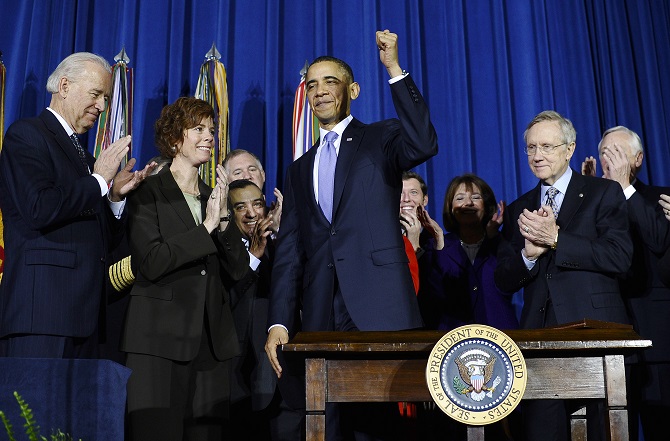‘Don’t Ask, Don’t Tell’ was repealed five years ago today

Five years ago today, Barrack Obama repealed the infamous ‘Don’t Ask, Don’t Tell’ (DADT) policy banning openly gay soldiers.
The president signed the Don’t Ask, Don’t Tell Repeal Act of 2010 after he promised to repeal the policy whilst campaigning for the White House in 2008.

DADT was first introduced in 1993 under Bill Clinton’s presidency as a compromise measure after he failed to persuade military leaders to drop the ban on gay, lesbian and bisexual people serving openly in the military.
The original aim of the policy was to maintain the ban on LGB people serving openly but also stop military recruiters asking about an applicant’s sexuality and therefore allowing LGB people to serve as long as they did not disclose their sexuality.
At the time, commander Craig Quigley, a Navy spokesman, told The New York Times that he was against any repeal of the ban on LGB people in the military was because “Homosexuals are notoriously promiscuous,” and that straight military personal who shared wash rooms with homosexual personal would have an “uncomfortable feeling of someone watching” if they allowed LGB people to serve.
Over time as opinions on LGBT rights began to soften across the country, more and more legal challenges were brought against the policy as approximately 14,000 troops were dismissed under DADT.
Most of those 14,000 were denied military benefits and pensions once they left the military.
After Obama signed the repeal act on the 22nd of December 2010 it took nearly a year for DADT to be dropped, and the US military began welcoming openly LGB service men and women in September 2011.
Since then there has been moves towards reinstating lost benefits and pensions to those who were dismissed under DADT, and a study was released in 2012 that revealed that the repeal had no negative impact on the US military.
However, whilst LGB people were finally allowed to serve openly and also seek military spousal benefits when same-sex marriage was legalised, the ban on transgender people serving is still in effect.
But that may be changing soon.

